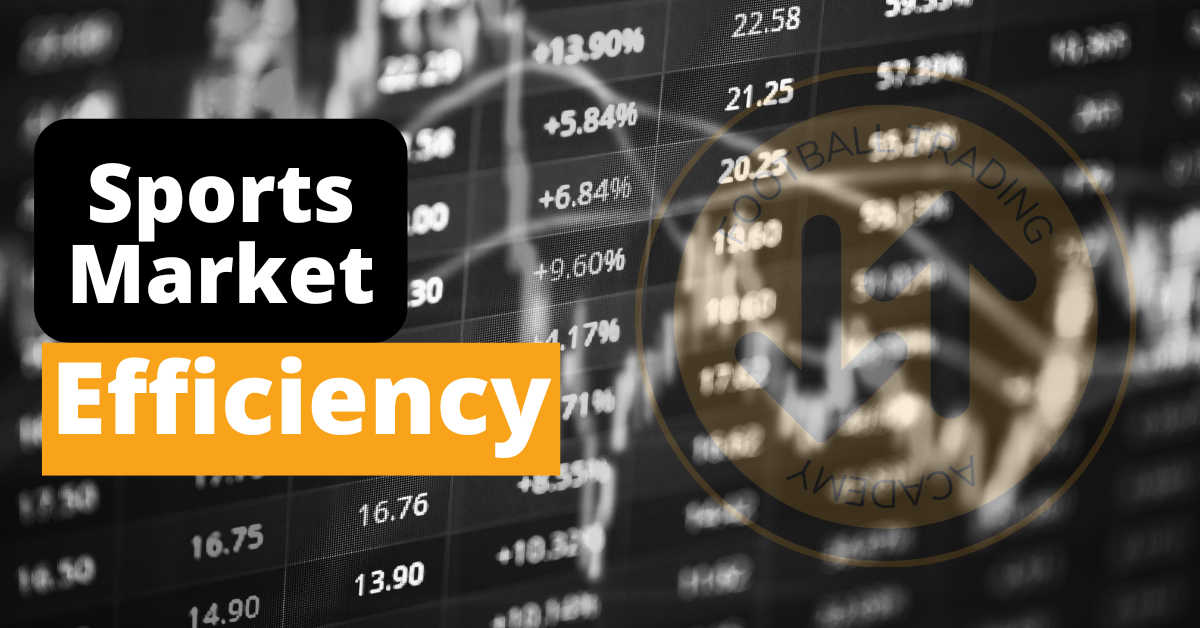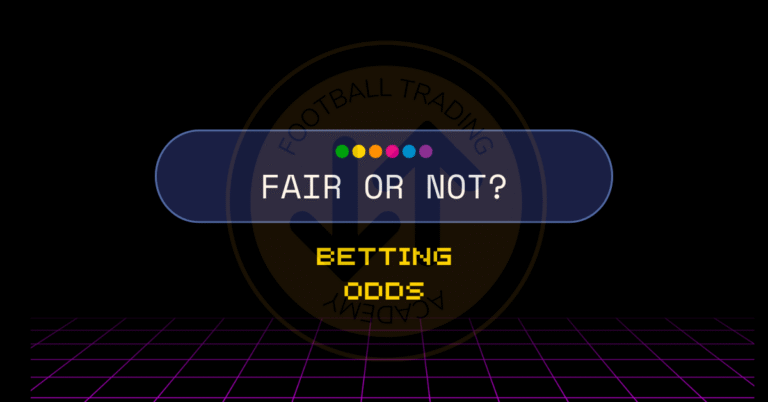Understanding Market Efficiency in Sports Trading
When it comes to sports trading, one of the most important concepts to grasp is market efficiency. Simply put, a market is considered efficient when all available information is already factored into the odds, making it difficult to find a consistent edge. Market efficiency plays a crucial role in determining whether traders can find value or if prices are already optimized by the wisdom of the crowd, sharp bettors and algorithms.
In this article, we’ll break down what market efficiency is, how it applies to sports trading, and whether it’s possible to beat an efficient market.
What Is Market Efficiency?
In financial markets, market efficiency is the idea that asset prices reflect all available information, making it nearly impossible to consistently outperform the market. This same principle applies to sports betting and betting exchanges.
A perfectly efficient betting market would mean that every piece of public information, statistical model, and betting activity is already incorporated into the odds, making it difficult for traders to find value.
Hence, if I wish to know the best probability of an event to happen, I simply convert the odds into a percentage (100/2.00=50%). And…Voila! We let bookmakers and exchanges do the job for us. This would be more accurate than any model we can have.
Yes, it’s true… sports trading markets are not always perfectly efficient—and sometimes opportunities can arise.
We suggest having a look at this interesting video that we’ve found recently – “Why Betting Markets Beat the Experts“.
Proof of Market Efficiency: Backtesting 11,848 Matches
To put market efficiency to the test, we conducted a backtest on 11,848 matches from the top seven European leagues—England, Spain, Germany, Italy, France, Belgium, and Portugal—over the past few seasons. The results? A perfect demonstration of how efficient sports betting markets truly are.

Backing any of the 1X2 outcomes blindly would have resulted in a small loss, a percentage very close to the 2% exchange commission.
But what about the goals market? We tested that as well, and the outcome was even more striking—losses almost exactly matching the 2% commission.

No matter what you bet on, your final balance was consistently reduced by the commission or bookmaker’s margin. This confirms that, over time, the market prices are extremely efficient, making it nearly impossible to profit without a real edge.
How Market Efficiency Affects Sports Trading
The level of market efficiency in sports trading varies depending on several factors:
✔ Liquidity – High-liquidity markets (like Premier League Match Odds) are much more efficient than low-liquidity ones.
✔ Sharp Bettors & Syndicates – Markets with professional bettors influence prices faster, making it harder to find edges.
✔ Timing – The closer a market gets to an event starting, the more efficient it becomes as new information is priced in.
✔ Information Gaps – Sudden changes (injuries, weather, lineup adjustments) can create inefficiencies before the market corrects itself.
In highly liquid markets, the odds tend to settle at a fair value before kickoff, meaning most inefficiencies disappear quickly. This makes it much harder to find profitable trades unless you have a real edge.
Can You Beat an Efficient Market?
While market efficiency makes long-term profitability more challenging, there are still ways for traders to find an edge:
🔹 Focusing on Low-Liquidity Markets – Smaller leagues and niche markets tend to be less efficient, creating more opportunities.
🔹 Reacting Faster Than the Market – If you can process breaking news or in-play developments quicker than others, you may find inefficiencies. Check our Value Betting article for example.
🔹 Using Advanced Models – Having a statistical model that identifies mispriced odds can help spot value before the market corrects.
🔹 Trading Instead of Betting – Rather than placing outright bets, scalping and taking advantage of short-term price fluctuations can work even in efficient markets.
Conclusion
The reality is that sports betting markets are highly efficient, especially in popular events and closer to kick-off. Inefficiencies still exist—just not as frequently or as obviously as some may think. To succeed, traders must either accept smaller, consistent edges or look for softer markets where efficiency is lower.
Market efficiency is not an obstacle—it’s a challenge. And those who understand it can still find opportunities to profit.





